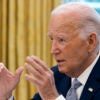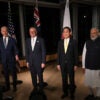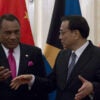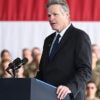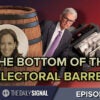Last week Representative Ileana Ros-Lehtinen (R–FL) introduced H.R. 3766, resurrecting the supposed “gold standard” for commercial nuclear trade. However, the bill discourages the very behavior that could help to solve the problems it aims to address.
The global expansion of commercial nuclear power does present new challenges. In response, H.R. 3766 would create additional restrictions and rules governing the export of commercial nuclear technology from the U.S. as a way to strengthen nonproliferation efforts. However, the problem with this approach is it:
- Creates an unnecessary and counterproductive bureaucratic burden. Congress set up a system in the Atomic Energy Act that allows the executive branch to conclude international nuclear trade agreements when certain conditions are met. These conditions are already very restrictive and give Congress meaningful points of input in the process. And even once those conditions are met, exports are subject to thorough (and sometimes unnecessarily onerous) regulations. In addition, there is an entire regime of international agreements in place to control the diversion of commercial nuclear technology to military purposes.
- Overestimates America’s influence on the global commercial nuclear industry. H.R. 3766 would compel nations to comply with a series of onerous mandates in order to engage in nuclear trade with the U.S. However, American companies are no longer major suppliers of commercial nuclear products. Today, French, Japanese, Russian, and South Korean companies lead the industry. So while concluding a nuclear trade agreement with the U.S. may bring certain benefits, it is not necessary for gaining access to commercial technology.
- Would limit U.S. influence. Rather than prevent other countries from building commercial nuclear power or illegitimate diversions of nuclear technology, H.R. 3766 would only discourage nations from doing business with the U.S. This closes off opportunities to integrate America’s safety, transparency, and nonproliferation standards in the programs of partnering nations.
- Puts too much emphasis on weapons and not enough on safety. The threat of nuclear weapons proliferation does not emanate as directly from commercial nuclear trade as is sometimes perceived. Problems with nuclear proliferation are due more to politicians not following through when safeguards expose illegitimate uses of civil nuclear programs. Some of the most important nuclear exports the U.S. can offer are its regulatory and safety standards.
- Lacks critical nuance pertaining to enrichment and reprocessing. H.R. 3766 would require any nation to forswear enrichment and reprocessing as a prerequisite to nuclear trade with America. While enrichment capabilities should remain within the P-5 nations and reprocessing should not fall into the hands of would-be proliferators, used fuel processing can be a legitimate way to manage nuclear waste. By casting unspecified prohibitions, H.R. 3766 could prevent peaceful nuclear nations from accessing potentially critical technologies.
Nuclear nonproliferation is important, and the U.S. should absolutely use foreign policy tools to address that front. However, H.R. 3766 misidentifies those problems with America’s nuclear trade regime and offers solutions that would frustrate America’s nonproliferation and commercial nuclear efforts.





